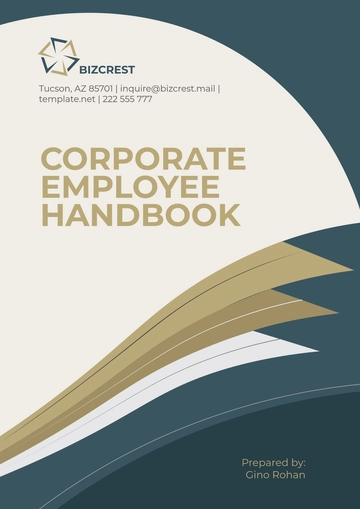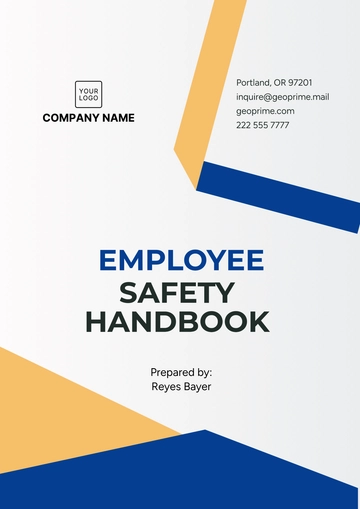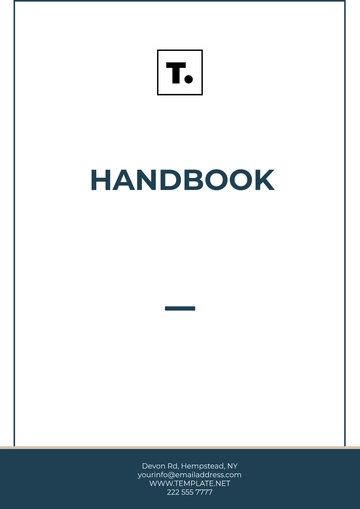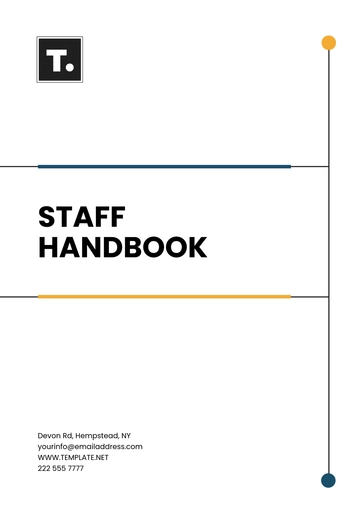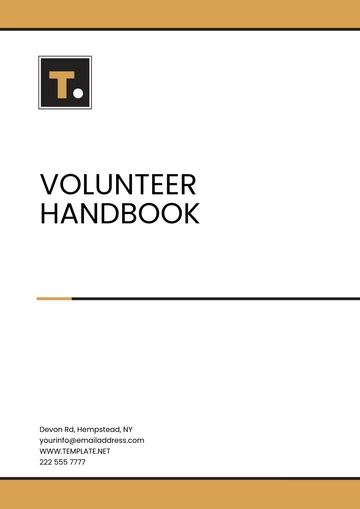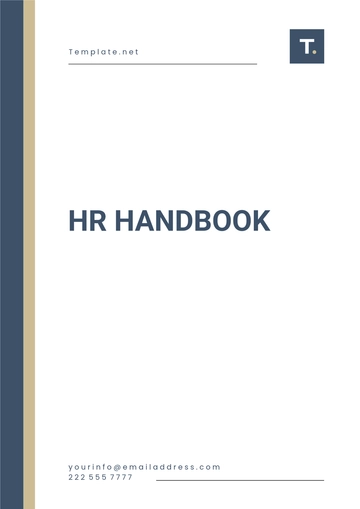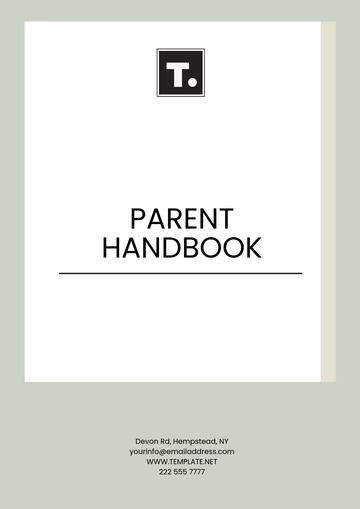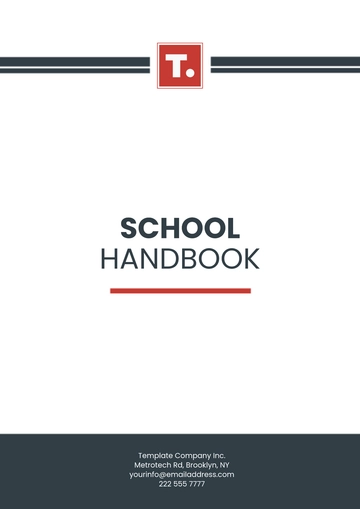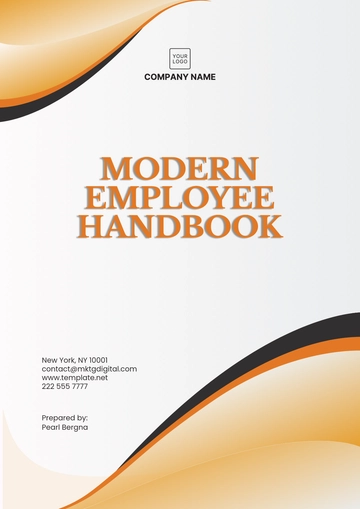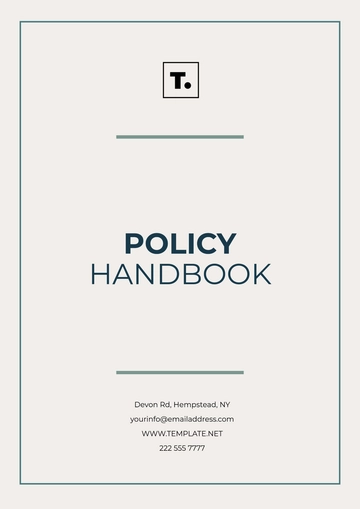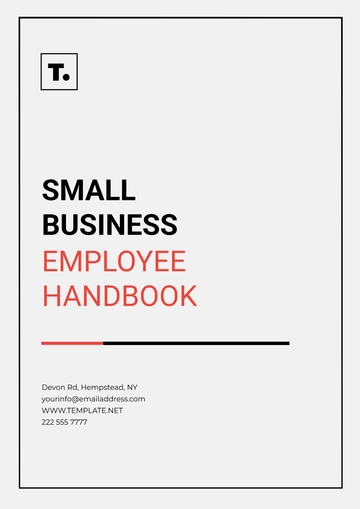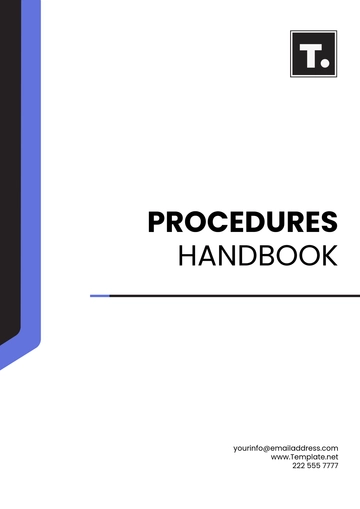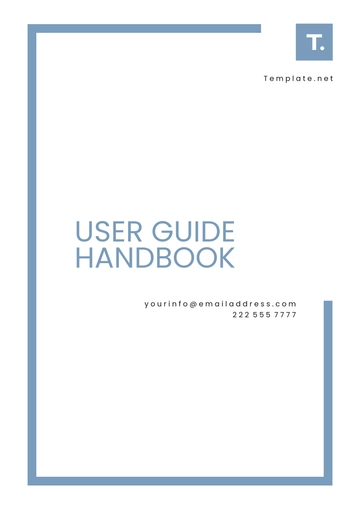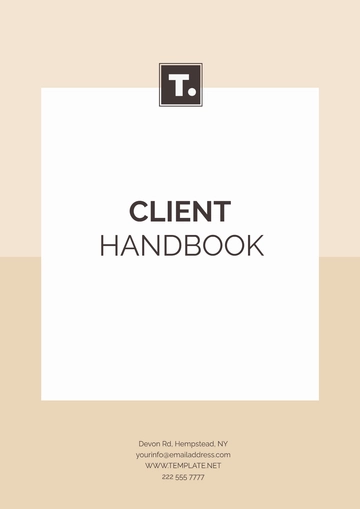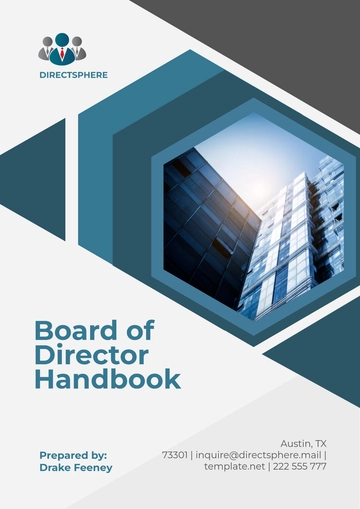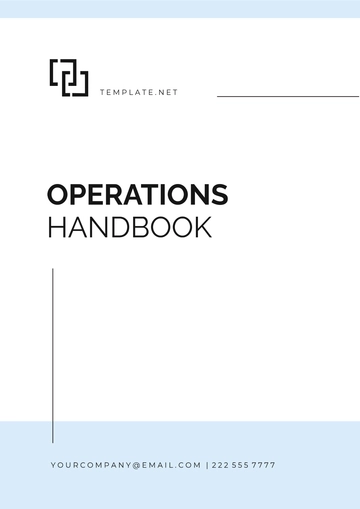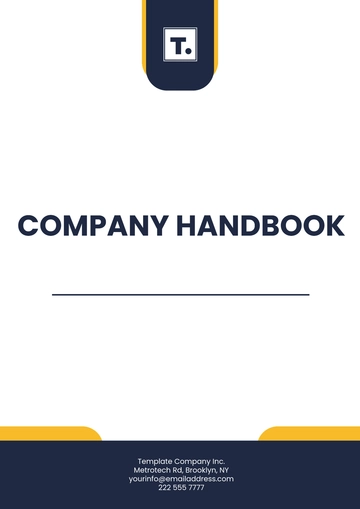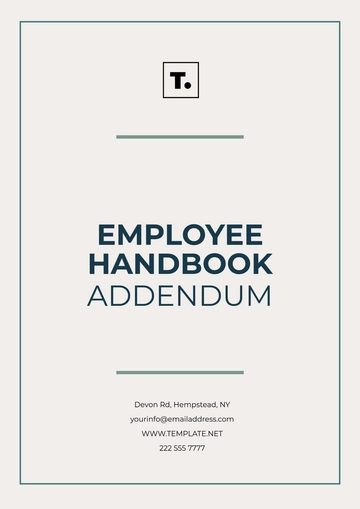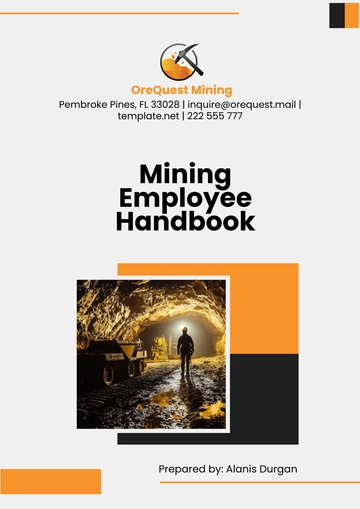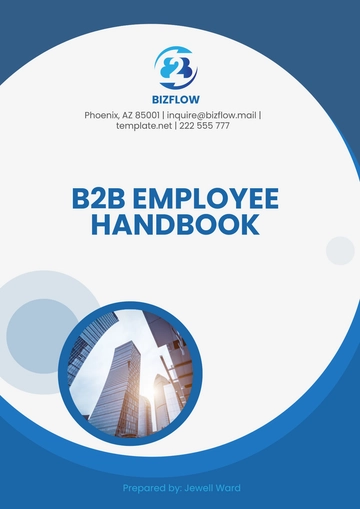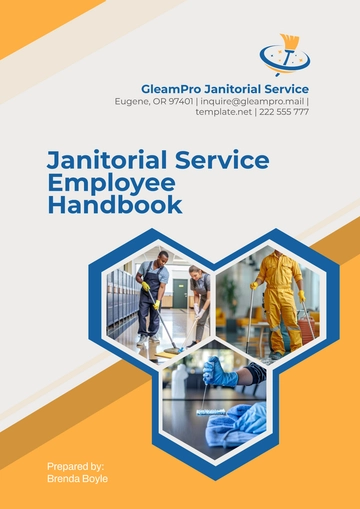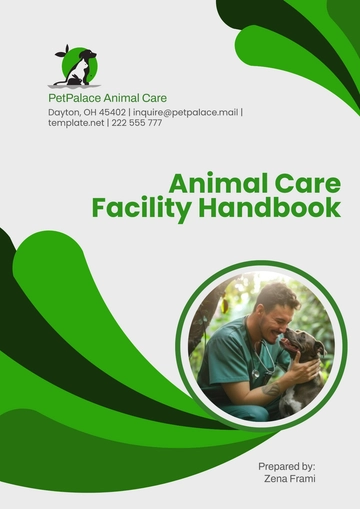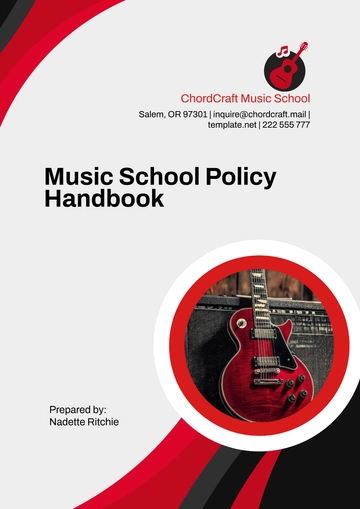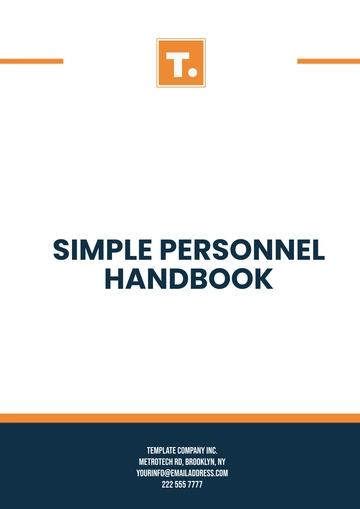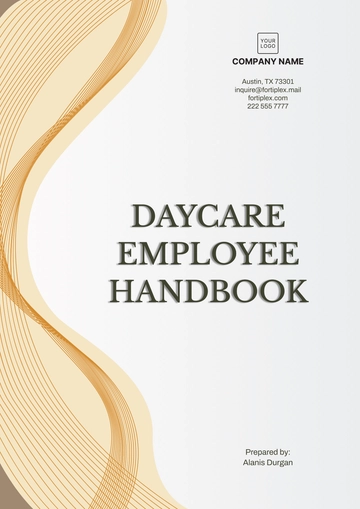Free Car Rental Management Handbook
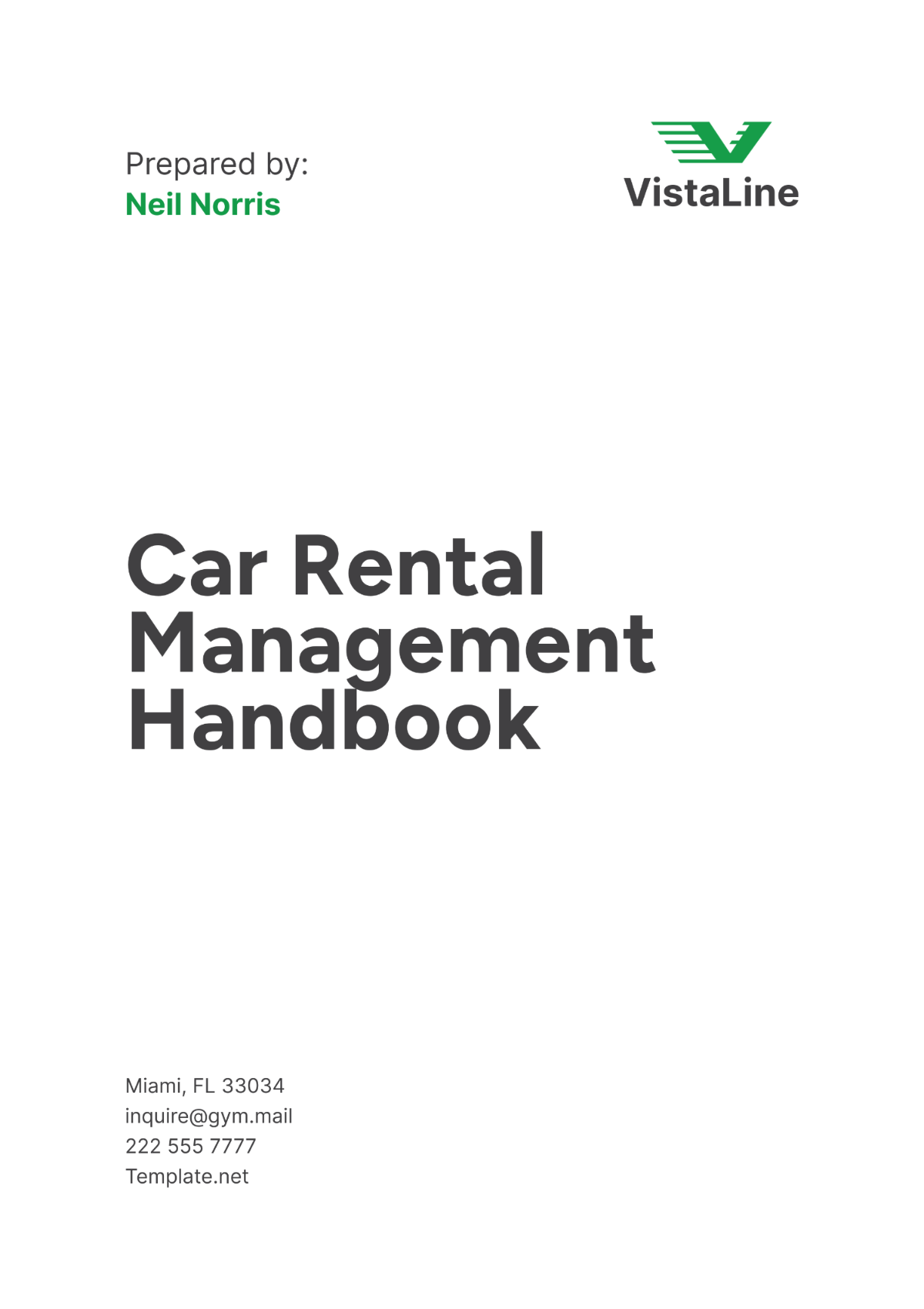
I. Introduction
A. Purpose
This Car Rental Management Handbook ("Handbook") outlines the policies, procedures, and expectations for managing our car rental operations efficiently and effectively.
B. Scope
The Handbook applies to all employees, contractors, and stakeholders involved in our car rental operations.
C. Objectives
Our primary objectives are to provide exceptional customer service, maintain our fleet in excellent condition, and ensure smooth and safe rental experiences for all customers.
II. Fleet Management
A. Vehicle Acquisition
We will acquire vehicles based on market demand, customer preferences, and operational needs. The acquisition process includes researching vehicle models, negotiating with dealers, and ensuring compliance with all legal requirements. Here are the guidelines that should be considered:
Consider features such as technology integration, seating capacity, and comfort.
Acquire vehicles suitable for various operational purposes.
Optimize fleet composition to meet diverse customer requirements.
Prioritize vehicles with excellent safety ratings and features.
Choose vehicles that offer optimal fuel efficiency to minimize operational costs.
Ensure all vehicles comply with local, state, and federal regulations.
Verify licensing, registration, insurance coverage, and emissions standards.
Conduct cost-benefit analysis to determine total cost of ownership (TCO).
B. Maintenance and Repairs
Regular maintenance and timely repairs are critical for the safety and reliability of our fleet. We will adhere to a strict maintenance schedule and perform repairs promptly to minimize vehicle downtime.
Task | Frequency |
|---|---|
Routine Inspections | Every 3 months |
Oil Changes | Every 5,000 miles |
Tire Rotations | Every 6 months |
Brake Checks | Annually |
Fluid Checks | Every 3 months |
Engine Tune-ups | Every 12 months |
HVAC System Inspection | Every 6 months |
Bodywork and Paint Touch-ups | As needed |
Emergency Repairs | As needed |
C. Vehicle Disposal
Vehicles will be disposed of once they reach a certain mileage or age, or if they no longer meet our quality standards. The disposal process includes evaluating the vehicle's condition, determining its market value, and completing the necessary paperwork. Here are the guidelines that should be considered:
Obtain market value estimates for vehicle based on its age, mileage, and condition.
Decide whether to sell, trade-in, or recycle the vehicle.
Consider environmental impact and sustainability factors in the disposal decision.
Complete all necessary paperwork for vehicle disposal, including transfer of ownership documents, cancellation of registrations, and deregistration from insurance.
Ensure compliance with local, state, and federal regulations regarding disposal.
Securely erase all personal information stored in the systems before disposal.
Maintain detailed records of the disposal process, including paperwork, valuations, and compliance certificates.
III. Customer Service
A. Rental Process
The rental process should be efficient and customer-friendly. This includes verifying customer information, processing payments, and providing a thorough vehicle orientation.
B. Customer Communication
Effective communication with customers is essential. We will promptly address customer inquiries, provide clear and concise information, and handle any issues or complaints professionally.
C. Feedback and Improvement
We will regularly solicit feedback from customers to identify areas for improvement. Customer feedback will be used to enhance our services and ensure customer satisfaction.
IV. Payment and Billing
A. Payment Methods
We accept various payment methods, including credit cards, debit cards, and digital payments. All transactions will be processed securely to protect customer information.
B. Billing Procedures
Billing procedures must be clear and transparent. Customers will receive detailed invoices outlining all charges, including rental fees, additional services, and any applicable taxes or fees.
C. Handling Disputes
In the event of a billing dispute, we will investigate the issue promptly and resolve it in a fair and transparent manner. Customers will be informed of the resolution process and any actions taken.
V. Insurance and Liability
A. Insurance Coverage
We provide basic insurance coverage for all rental vehicles. Customers have the option to purchase any of the additional coverage below for enhanced protection.
Coverage Type | Price Per Day |
|---|---|
Collision Damage Waiver | $10 |
Theft Protection | $8 |
Liability Insurance | $12 |
Personal Accident Insurance | $5 |
Roadside Assistance | $7 |
B. Claims Management
In the event of an accident or damage to a rental vehicle, we will manage the insurance claims process efficiently. This includes reporting the incident, coordinating with insurance providers, and communicating with the customer.
C. Liability Policies
Our liability policies outline the responsibilities of both the company and the customer in case of an accident or damage. Customers will be informed of their liabilities and the procedures for handling such situations.
Vehicle Use Responsibilities: Customers are responsible for using the rental vehicle in accordance with local traffic laws and regulations. They must operate the vehicle safely and avoid reckless driving practices.
Damage and Accidents: Customers are liable for any damage caused to the rental vehicle during the rental period, except for incidents covered by insurance or waivers. They must report any accidents or damage promptly and cooperate fully with the company and authorities.
Insurance Coverage: Basic insurance coverage is included with the rental, covering certain damages and liabilities up to specified limits. Customers have the option to purchase additional insurance coverage to reduce their financial liability in case of accidents, theft, or other incidents.
Additional Charges: Customers may incur additional charges for exceeding mileage limits, returning the vehicle late, or failing to refuel as agreed upon.
Return Conditions: Customers are responsible for returning the vehicle in the same condition as rented, barring normal wear and tear. They must return the vehicle on time and to the agreed-upon location.
Legal Compliance: Customers must comply with all legal requirements related to the use and operation of the rental vehicle, including registration and licensing.
Damages Not Covered: Customers are responsible for damages not covered by insurance or waivers, such as interior damage, lost keys, or negligence.
Liability Limits: The company limits its liability to the terms outlined in the rental agreement and applicable insurance policies. Customers are advised to review all terms and conditions before renting to understand their financial responsibilities and liabilities.
VI. Safety and Compliance
A. Safety Protocols
We prioritize the safety of our customers and employees. This includes regular safety inspections, adherence to traffic laws, and promoting safe driving practices.
B. Regulatory Compliance
We will comply with all local, state, and federal regulations related to car rental operations. This includes the following:
State Minimum Insurance Coverage: Each state sets minimum liability insurance requirements for rental vehicles.
Collision Damage Waiver (CDW): Optional insurance coverage that must be clearly disclosed in rental agreements.
Environmental Protection Agency (EPA) Standards: Compliance with vehicle emissions standards and environmental impact regulations.
Fuel Efficiency Standards: Adherence to Corporate Average Fuel Economy (CAFE) standards for fleet vehicles.
Fair Credit Reporting Act (FCRA): Protects consumer credit information and usage in rental transactions.
Truth in Lending Act (TILA): Requires clear disclosure of terms and costs associated with renting vehicles.
National Highway Traffic Safety Administration (NHTSA): Sets vehicle safety standards and recalls for defective vehicles.
Occupational Safety and Health Administration (OSHA): Ensures workplace safety standards are met for employees.
Americans with Disabilities Act (ADA): Ensures accessibility for individuals with disabilities in vehicle rentals and facilities.
Fair Labor Standards Act (FLSA): Sets minimum wage, overtime pay, and child labor standards for employees.
Equal Employment Opportunity Commission (EEOC) Guidelines: Prohibits discrimination based on race, color, religion, sex, or national origin.
Sherman Antitrust Act: Prohibits monopolistic practices and anti-competitive behavior in the car rental industry.
Federal Trade Commission (FTC) Act: Ensures fair competition and consumer protection in business practices.
C. Employee Training
Employees will receive regular training on safety protocols, customer service standards, and regulatory compliance to ensure they are well-equipped to perform their duties.
Program | Frequency | Duration |
|---|---|---|
Safety Protocols | Quarterly | 1 day workshop |
Customer Service Standards | Monthly | 2 hours session |
Regulatory Compliance | Biannually | 4 hours session |
New Employee Orientation | Onboarding | 1 week |
Technology Updates | Annually | 1 hour session |
VII. Technology and Innovation
A. Fleet Management Systems
We will utilize advanced fleet management systems to monitor vehicle performance, track maintenance schedules, and optimize rental operations.
B. Customer Relationship Management
A robust customer relationship management (CRM) system will be used to manage customer interactions, track feedback, and personalize services.
C. Digital Transformation
We will continually explore new technologies and digital solutions to enhance our rental operations, improve customer experiences, and stay competitive in the market.
VIII. Performance Monitoring and Evaluation
A. Key Performance Indicators
Key performance indicators (KPIs) will be established to measure the effectiveness of our rental operations. These KPIs will include the following:
Metric | Target Value |
|---|---|
Customer Satisfaction | 90% or higher |
Fleet Utilization | 80% |
Revenue Growth | 10% increase annually |
Average Rental Duration | 5 days |
Vehicle Turnaround Time | 1 day |
Profit Margin | 20% |
B. Regular Audits
Regular audits will be conducted to ensure compliance with company policies, regulatory requirements, and industry best practices.
Audit Type | Frequency | Responsible Party |
|---|---|---|
Safety and Compliance Audit | Quarterly | Internal Audit Team |
Financial Audit | Annually | External Audit Firm |
Customer Service Audit | Biannually | Quality Assurance Team |
Fleet Maintenance Audit | Biannually | Operations Team |
Regulatory Compliance Audit | Annually | Legal and Compliance Team |
C. Continuous Improvement
We are committed to continuous improvement. Regular reviews of our operations, customer feedback, and performance metrics will be conducted to identify opportunities for enhancement and implement necessary changes.
IX. Adherence to Policies
All employees are expected to adhere to the policies and procedures outlined in this Handbook. Any deviations or violations will be addressed promptly to maintain the integrity of our operations.
This Handbook will be reviewed and updated regularly to reflect changes in industry standards, regulatory requirements, and company policies. Employees will be informed of any updates and provided with the necessary training and resources.
- 100% Customizable, free editor
- Access 1 Million+ Templates, photo’s & graphics
- Download or share as a template
- Click and replace photos, graphics, text, backgrounds
- Resize, crop, AI write & more
- Access advanced editor
Car Rental Management Handbook Template from Template.net offers an editable and customizable solution for creating a comprehensive guide. Editable in our AI Editor tool, this template allows you to detail policies, procedures, and best practices tailored to your car rental business. Ensure consistent management and high operational standards with this versatile and professional handbook template.
